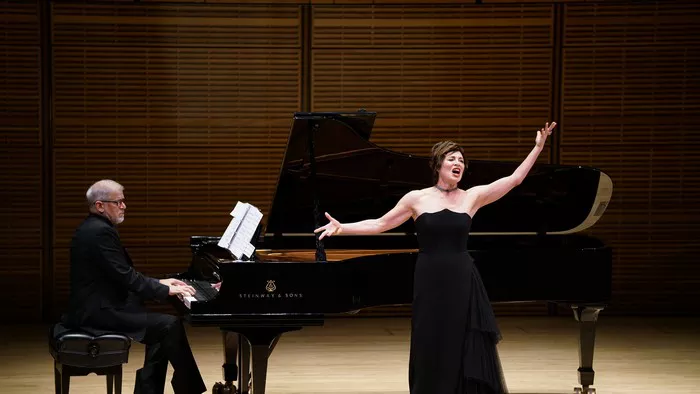Singing classical music is a remarkable and demanding endeavor that requires exceptional skill, dedication, and a deep understanding of musical history and theory. In this article, we will explore why singing classical music is so difficult, highlighting the unique challenges that classical vocalists face in their pursuit of musical excellence.
A Rich Tradition: Classical Music’s Historical Significance
Classical music has a rich and storied history that spans centuries. This genre encompasses a wide range of styles and compositions, from the intricate operas of Mozart to the passionate arias of Verdi. The classical music tradition is deeply rooted in European musical heritage, and its complexity is a testament to the centuries of musical innovation that have shaped it.
The Technical Demands: Precision and Control
One of the primary reasons why singing classical music is so challenging is the immense technical skill it demands. Classical vocalists must possess exceptional control over their voices, from the delicate pianissimo passages to the powerful fortissimo crescendos. The precision required to navigate complex vocal ornamentation, such as trills and runs, is a hallmark of classical music performance.
Mastering the Vocal Range: Extensive Registers and Timbres
Classical music often calls for a wide vocal range, spanning from the deep and resonant bass notes to the soaring heights of soprano lines. Singers must not only master this extensive range but also be capable of modulating their timbre to suit the emotional nuances of the music. This adaptability is a unique challenge in classical music, as vocalists must navigate between various registers and colors seamlessly.
Expressing Emotion: The Art of Interpretation
Beyond technical prowess, classical vocalists face the formidable task of interpreting and conveying the emotional depth of the music. Each piece in the classical repertoire carries its own narrative and emotional arc. Singers must delve into the composer’s intentions, historical context, and lyrical content to infuse their performance with authenticity and emotional resonance.
Language and Diction: Multilingual Mastery
Classical music often features lyrics in multiple languages, including Italian, German, French, and Russian, among others. Singers must not only sing in these languages but also master the nuances of pronunciation, diction, and phrasing specific to each. Achieving linguistic authenticity is essential for conveying the full meaning and emotional impact of the lyrics.
Vocal Health: A Lifelong Commitment
Maintaining vocal health is a perpetual concern for classical vocalists. Unlike other musical genres, classical singing places significant demands on the vocal cords, requiring meticulous care and maintenance. Overuse or improper technique can lead to vocal strain and injury, making vocal health a top priority for those pursuing a career in classical music.
The Challenge of Auditions and Competitions
The path to a successful career in classical music is often paved with competitive auditions and competitions. Singers must continually prove themselves in front of discerning judges and audiences, facing both criticism and rejection along the way. This competitive environment adds an extra layer of difficulty to the journey of a classical vocalist.
Mastery of Vocal Techniques: Bel Canto and More
Classical vocalists often study and master specific techniques, such as the bel canto style, which emphasizes beautiful singing and perfect legato. These techniques require not only technical precision but also a deep understanding of the underlying principles of vocal production. Mastery of these techniques is essential for achieving the desired level of artistry in classical singing.
Collaboration and Ensemble Work: Harmonious Balance
Many classical vocalists perform as part of ensembles, such as opera companies or choral groups. Collaborative work in classical music demands not only individual excellence but also the ability to blend voices seamlessly with other performers. Achieving the harmonious balance necessary for ensemble singing is a significant challenge in the world of classical music.
The Pursuit of Perfection: A Lifelong Journey
Classical music’s complexity and the multifaceted challenges it presents mean that the pursuit of perfection is a lifelong journey for vocalists. Even accomplished singers continue to refine their technique, interpretation, and artistry throughout their careers. This unending quest for excellence is what sets classical music apart as one of the most demanding and rewarding genres to master.
Conclusion
In conclusion, singing classical music is an art form that demands exceptional technical skill, emotional depth, linguistic mastery, and a lifelong commitment to vocal health and improvement. The challenges faced by classical vocalists are formidable, but they are also what make this genre so profoundly rewarding. Through their dedication and artistry, classical singers bring to life the timeless beauty of classical music, ensuring that it continues to captivate audiences for generations to come.

